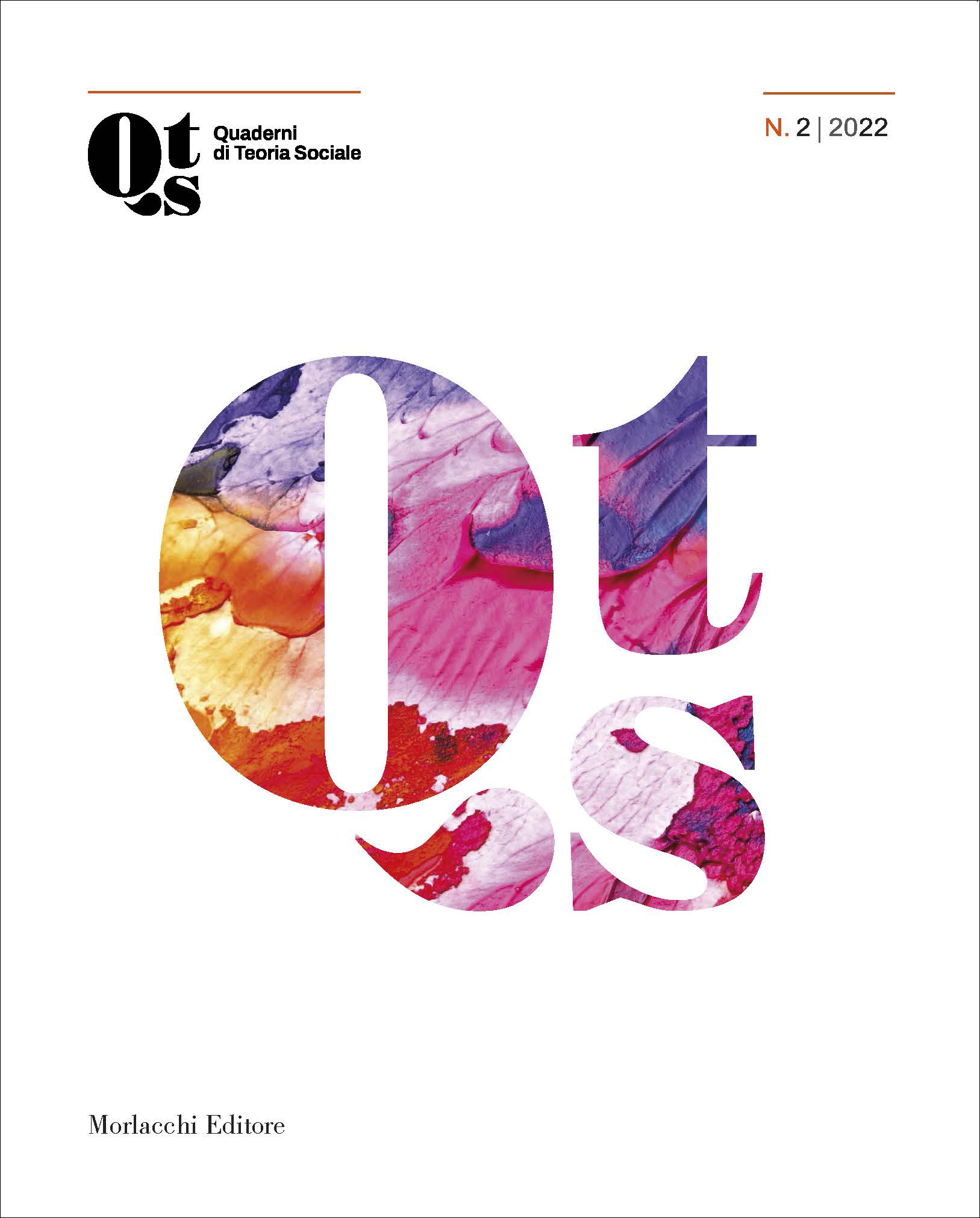Ideologie e populismo: prospettive morfologiche
DOI:
https://doi.org/10.57611/qts.v1i2.181Parole chiave:
ideology, populism, democracyAbstract
My contribution will focus on the analysis of the contemporary debate on ideology, in particular from the point of view of social theory and political sociology. In an attempt to provide a general interpretation, I will present some of the most recent scientific positions on the subject, underlining the main issues underlying the fronts of analysis on this subject.
Whenever we talk about ideology, it is necessary to remember what the anthropologist Clifford Geertz defines the Mannheim paradox, namely: “any evaluation of ideology is still ideological and therefore ideologized, that is, it is always linked to the real life situation of the thinker. A statement that Raymond Boudon explains as follows: “since according to Mannheim, the perception of a historical datum is always a historical perception itself and depends on the historical position of the observer”.This inevitable historicity of the theme of ideology also implies that every discourse on ideology, and therefore also every critical discourse on ideology, is always historically determined. The scientific discussion on ideology is based on semantic, categorical and definitional premises determined by the historical-social contingency. This peculiarity means that ideology is a dynamic and changing scientific object and that a critique of ideology to be effective must start from the analysis of reality and therefore conform to real phenomena. It should also be considered that the history of ideology studies shows how moments of great centrality of the topic alternate with moments of near-forgetfulness or in any case marginalization with respect to the scientific debate. In this sense, the current phase is characterized by a still weak presence of studies on contemporary ideology, although there are signs of recovery from many quarters and in the context of specialized debates, ideology returns as a sub-category. An example of this is the use of the concept of thin ideology expressed by Michael Freeden and used by Cas Mudde in the most famous conceptualization of the category of populism.
##submission.downloads##
Pubblicato
Fascicolo
Sezione
Licenza
Copyright (c) 2022 Manuel Anselmi

Questo lavoro è fornito con la licenza Creative Commons Attribuzione - Non commerciale 4.0 Internazionale.
<a rel="license" href="http://creativecommons.org/licenses/by-nc/4.0/"><img alt="Licenza Creative Commons" style="border-width:0" src="https://i.creativecommons.org/l/by-nc/4.0/88x31.png" /></a><br />Quest'opera è distribuita con Licenza <a rel="license" href="http://creativecommons.org/licenses/by-nc/4.0/">Creative Commons Attribuzione - Non commerciale 4.0 Internazionale</a>.






